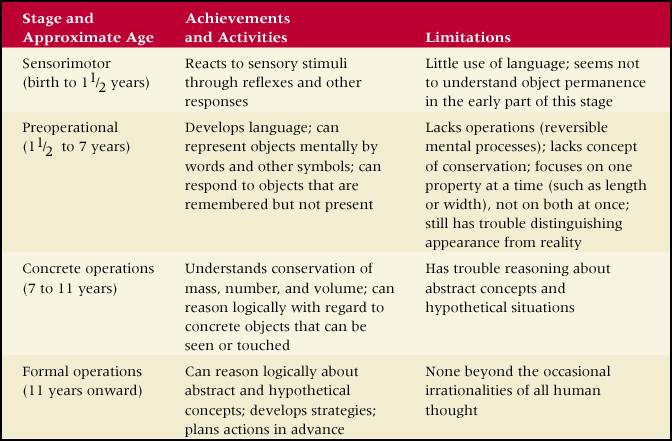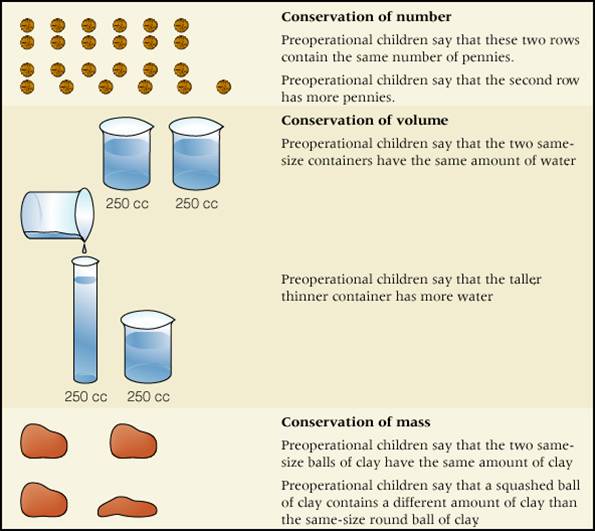
Psy 611 Human Learning & Cognition
Ch. 2 Piaget's Theory of Development
I. Assumptions
A. The child is a scientific problem solver
Development involves adapting to reality
Problems stimulate cognitive growth
Observing child in an unfamiliar situation reveals active cognitive reasoning (familiar situations often elicit rote reactions-passive)
B. Development occurs through active cognitive processes
E.g., assimilation, accommodation, and equilibration
Mental representations emphasize structural relations and causes
C. Flexible methodology with fewer controls
Trade-off between precision and replicability vs. rich descriptions and insights. Piaget leaned toward the later.
II. The Stage Model

III. Development of Critical Concepts
A. Conservation

B. Classes and Relations
Children initially understand classes and relations as separate ideas. Children eventually integrate these concepts into a unified understanding (usually in the concrete operational period).
IV. Evaluate the Theory